Wi-Fi Repeaters vs. Extenders
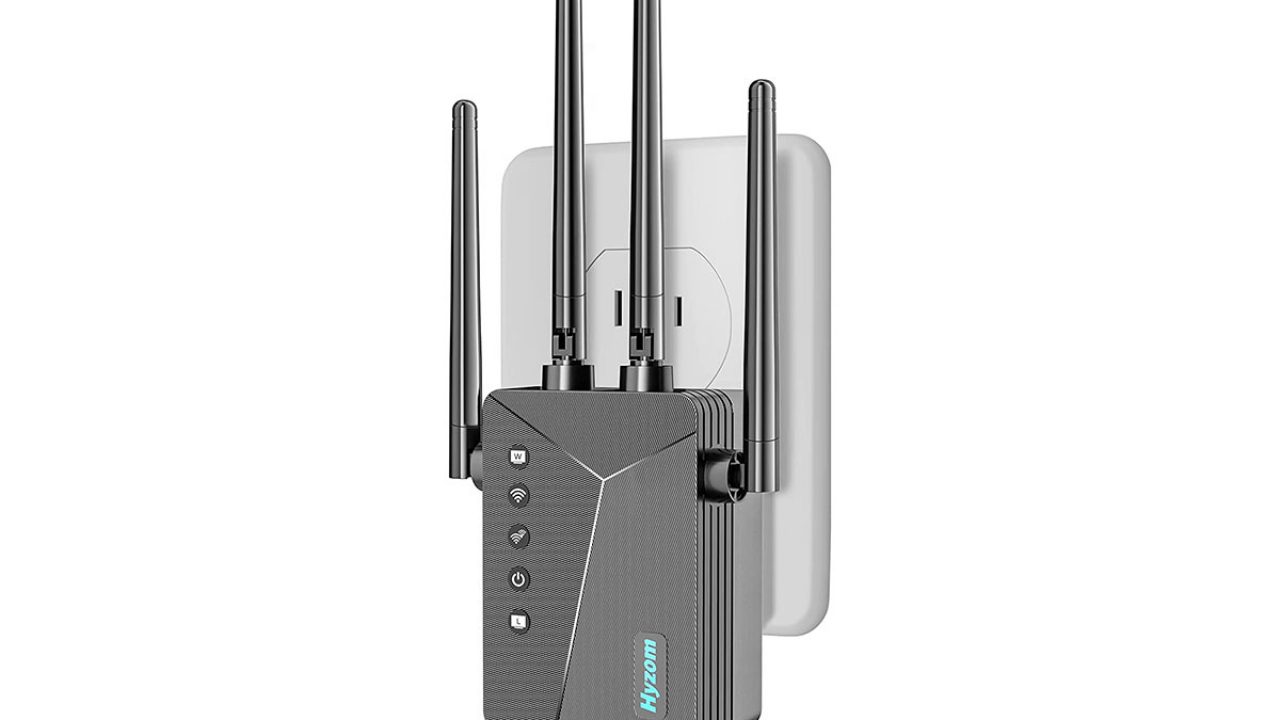
The Wi-Fi connection your router generates has a set range. As long as you stay within that range, you can usually connect your wireless devices to the network without issues. Unfortunately, some homes and offices are so large that the range offered by a standard router isn’t enough to provide full coverage. Or, walls and floors may present obstacles that weaken connection strength as you get closer to the edge of your router’s range.
In either case, you end up with patchy Wi-Fi connections that cut out or don’t provide the speeds you expect.
To solve these problems, you need to find a way to amplify your Wi-Fi signal. That’s where Wi-Fi repeaters and extenders come into play. Though these terms are often used interchangeably, repeaters and extenders are two different devices. This article explains the differences between them and highlights the pros and cons, so you can decide which is better for your needs.
What Is a Wi-Fi Repeater?
Wi-Fi repeaters are signal boosting devices that improve your signal’s coverage range. They come with antennas that pick up your home Wi-Fi signal from your router, which the device then rebroadcasts to create a larger coverage area. This creates an extension of the network your router emits. Devices connected to a repeater behave as if they connected to the router directly, only with a slightly higher bandwidth.
Because repeaters use your existing Wi-Fi signal, they need to be placed somewhere that the signal is strong. Placing a repeater at the edge of your current coverage range, where the signal is likely weaker, means the device may struggle to pick up a consistent signal. Though it’ll still extend your coverage, the quality of your connection may suffer.
Repeaters also have to be compatible with your router’s protocols. Happily, this isn’t an issue for most consumer repeaters, which use the same 802.11 and 802.11a protocols that most modern routers use. More challenging is the need for compatible security encryption. For example, a new router may use the WPA2 encryption signal. This would make it incompatible with a repeater that uses the WPA or WEP signal. Of course, the opposite is true for repeaters that use WPA2 and routers using WPA or WEP.
What Is a Wi-Fi Extender?
Wi-Fi extenders serve a similar function to repeaters in the sense that they extend your Wi-Fi signal’s coverage range. The main difference between the two is that extenders connect directly to your router using a coaxial or ethernet cable. This makes extenders more helpful in extending coverage in dead zones, where the Wi-Fi signal is exceptionally low. Because they’re hardwired, extenders can rebroadcast a Wi-Fi signal without interference, meaning they work almost like mini-routers.
These devices have an antenna through which they broadcast. Because extenders don’t rebroadcast the existing signal, they create their own Wi-Fi networks. As a result, meaning they have unique Service Set Identifiers (SSIDs). This means you have to connect your device to a different network when relying on an extender to provide you with a Wi-Fi signal.
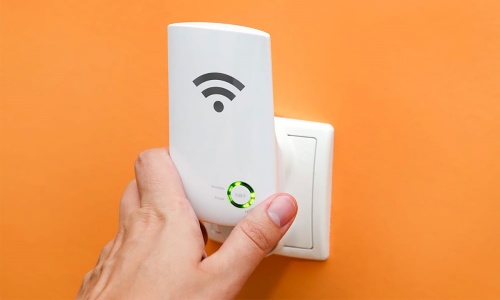
The Pros and Cons of Wi-Fi Repeaters
Wi-Fi repeaters have a few plus points that may convince you to pick one up. However, they also have marked drawbacks that could make them less effective for your needs.
The Pros
Pro No. 1 – Boosting Wi-Fi Signal
As long as the repeater can pick up an existing Wi-Fi signal using its antenna, it will be able to boost that signal into something more substantial. The extent of this boost depends on the strength of the signal the repeater picks up. The rebroadcasted signal is reasonably strong if the Wi-Fi signal has only degraded a small amount between the router and the repeater’s location. The repeater still provides a boost if it picks up a weak signal, though this boost will likely not restore the signal to something close to the original.
Regardless, repeaters increase signal strength, allowing you to use wireless devices in areas of your home that have trouble getting a signal.
Pro No. 2 – Easy to Set Up
Wi-Fi repeaters do not require a lot of complicated work to set up. They plug directly into any available power outlet and begin working from the moment you turn them on. Furthermore, though they create a new network, that network comes from rebroadcasting your existing network. As such, you don’t have to deal with different SSIDs or passwords.
Pro No. 3 – No Wires Needed
Though wired connections are always more reliable than wireless ones, they’re not always practical. For example, you may need to boost your signal in a room that’s five or more meters away from your router. Running a wire around your walls to get it to your Wi-Fi boosting device requires a long wire and an aesthetic sacrifice. Repeaters avoid this issue by picking up wireless signals, allowing you to avoid the use of long and unsightly cables.
The Cons
Boosted signals and ease of use may not be enough to convince you to invest in a Wi-Fi repeater if you can’t overlook these drawbacks.
Con No. 1 – Repeaters Halve Network Capacity
Though a repeater boosts signal strength, it does it in a way that cuts your network capacity in half. This happens because the repeater needs to receive and transmit data frames through its antenna when rebroadcasting. Receiving and transmitting simultaneously requires double the amount of data frames needed for transmitting alone, meaning your network’s bandwidth decreases by 50%.
You’ll experience the problems this issue creates first-hand if you try to transfer large files over your network. With the bandwidth halved, download and upload speeds decrease markedly.
Con No. 2 – They Don’t Work in Dead Zones
A dead zone is an area of your home that does not pick up any wireless signals from your router. If you need to boost a signal so you can connect to devices in a dead zone, a wireless repeater is not the right choice. Repeaters require the presence of a Wi-Fi signal to amplify. If no signal exists in the room, the repeater just sits there without being able to do anything.
Con No. 3 – Potential Encryption Signal Confusion
If your repeater’s signal encryption doesn’t match your router’s, you end up with a device that can’t do anything. Compatibility problems can lead to your repeater being unable to connect to your router, meaning you need a basic understanding of security encryption and protocols to make the correct choice.
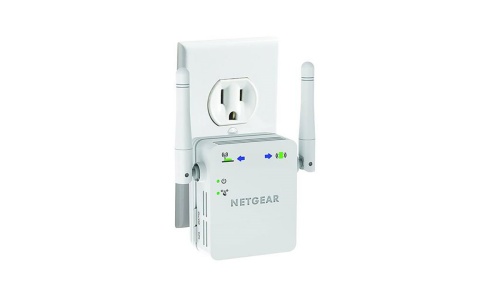
The Pros and Cons of Wi-Fi Extenders
Wi-Fi extenders offer more bandwidth and signal in dead zones. But there are a few concessions you need to make if you want to go with this option.
The Pros
The advantages of extenders mainly lie in the strength and quality of the signal they produce.
Pro No. 1 – No Bandwidth Changes
Because you hardwire a Wi-Fi extender into your router, you don’t have to worry about receiving data frames via an antenna. Instead, the signal goes straight to the extender, which uses its antenna to transmit the same strength signal as your router.
The result is that your bandwidth stays the same.
A device connected to an extender’s signal should achieve the same download and upload speeds as one connected to the router’s signal.
Pro No. 2 – Get Signal in Dead Zones
Again, the benefit of a hardwired connection is that Wi-Fi extenders don’t have to search for a signal to boost before they can start working. That’s especially useful if you have any completely dead zones in your home. By running a wire from your router to an extender, you can bring a signal to these zones where other Wi-Fi boosting options, such as repeaters, cannot.
Pro No. 3 – No Interference
Several things can interfere with a Wi-Fi signal. Walls, thick floors, and electronic devices can all cause the signal to weaken. That’s a problem for Wi-Fi repeaters because they work by picking up a signal and then amplifying it. Thankfully, the interference effect isn’t a problem for Wi-Fi extenders.
And again, it’s all down to the wired connection. As long as you have working wires, nothing can stop your router from transmitting a full signal to your Wi-Fi extender. That means you don’t have to worry about random signal dips.
The Cons
Wi-Fi extenders offer strong signals that aren’t subject to interference. They can also bring a signal to dead zones. However, you need to consider some crucial drawbacks before purchasing one.
Con No. 1 – Wires Galore
The desire to get away from wires is why wireless technology is so popular in the first place. For as much stability as a wired connection brings, there’s no denying that they’re often inconvenient. Having to hardwire an extender into a router means you have to alter the aesthetic of your rooms.
For example, let’s say you have a router downstairs at the east end of your house. That router’s signal covers almost every room, except for a bedroom upstairs on the west side of the property. To bring a signal to that dead zone, you need to run a wire across the length of your house, and likely up some stairs, to plug it into an extender that’s close enough to bring a signal to that dead zone. That means you have to find a long enough wire for the job and figure out how to use it without the wire getting in the way. Alternatively, you’ll need to do some renovations to put these wires inside walls, which can be costly.
Con No. 2 – Changing SSIDs
Because Wi-Fi extenders transmit their own signals, they create new Wi-Fi networks. These networks have unique SSIDs and passwords, meaning you have to change network connections depending on whether you’re using your router’s signal or the extender’s.
Returning to the house example offered previously, this means you can’t set up an extender and then have a single solid signal throughout the property. Instead, you need to change the Wi-Fi connection for your device whenever you enter the previously dead zone that the extender brings a signal to. It’s a minor inconvenience. But it’s also one that results in you doing more work to keep your devices connected.
On the plus side, some more recent models of Wi-Fi extenders off the option to use your router’s SSID, which can eliminate this drawback.
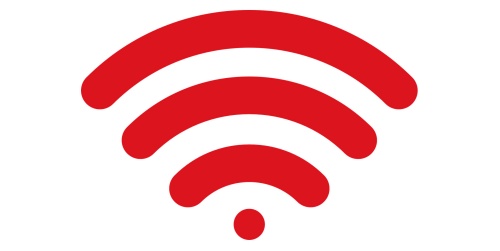
Should You Use a Wi-Fi Extender or Repeater?
Your needs determine whether you use a Wi-Fi extender or repeater.
If you’re simply looking to give a quick boost to a weakening signal in rooms that are on the edge of your router’s range, a Wi-Fi repeater should do the trick. These devices are easy to set up, connect directly to your existing Wi-Fi signal, and don’t require you to fiddle around with new SSIDs. As long as you ensure your repeater is compatible with your router, this option provides a reasonably simple plug-and-play experience.
A Wi-Fi extender should be your choice if you’re trying to bring a signal to any dead zones in your home. In these cases, repeaters won’t do much because they can’t pick up a signal to amplify. You need a hardwired connection for dead zones, so an extender can broadcast a new signal based on your router’s original signal.
An extender may also be the best option if you need a solid and stable connection. For example, online gamers may find that the signal interference that repeaters can experience will cause latency and stuttering issues when they’re playing. Wi-Fi extenders offer more stable connections because they’re wired directly to a router.
Make Your Choice
Now that you know the differences between Wi-Fi repeaters and extenders, you’re in a position to choose between the two. Repeaters offer greater convenience and a lower price, though you will likely sacrifice some signal strength. Extenders provide more stable signals and can reinvigorate dead zones, though they often cost more and require some wiring work to configure.
As a general rule, a repeater works best if you want to amplify an existing signal. Extenders are the choice for using your internet connection to create a new signal.
However, you may not need to choose at all.
Some manufacturers produce devices that serve as both extenders and repeaters. These devices allow you to hardwire them or use their antenna, depending on where you place them in your home or office. If you’re still undecided, investing a little extra money in a device that can do both offers you more flexibility and should solve every connection issue you have.






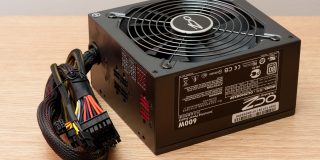










One thought on “Wi-Fi Repeaters vs. Extenders”